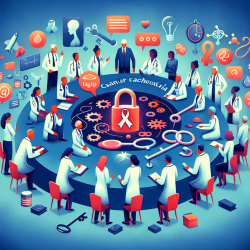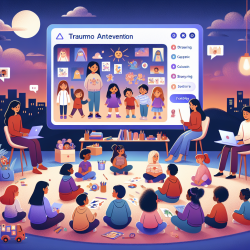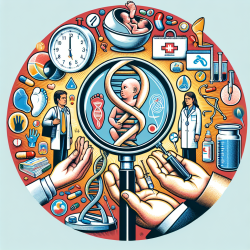Introduction
In the realm of oncology, cancer cachexia presents a formidable challenge, impacting patient outcomes, quality of life, and survival rates. The recent study titled "Identification and management of cancer cachexia in patients: Assessment of healthcare providers' knowledge and practice gaps" sheds light on the current deficiencies in healthcare providers' knowledge and practices. This blog aims to guide practitioners in enhancing their skills and implementing effective strategies to manage cancer cachexia, ultimately leading to improved patient care.
Understanding the Knowledge Gaps
The study reveals significant gaps in healthcare providers' understanding of cancer cachexia. A striking 23.7% of respondents expressed a lack of confidence in their ability to care for patients with this condition. Additionally, only 29.1% recognized the key criterion of cancer cachexia as more than 5% weight loss from baseline. These findings underscore the urgent need for targeted educational programs to bridge these knowledge gaps.
Implementing Effective Management Strategies
Despite the challenges, the study highlights several effective strategies that practitioners can adopt to manage cancer cachexia:
- Screening and Monitoring: Regular screening for weight loss in newly diagnosed cancer patients is crucial. The study found that 52.7% of respondents acknowledged the importance of this practice, yet only 47.4% weighed their patients at each visit. Systematic tracking of patient weight over time can lead to early intervention and better management.
- Nutritional Interventions: Increasing nutritional intake through oral supplements, energy and protein-fortified foods, and dietitian counseling are effective interventions. The study indicates that 64.2% of respondents utilize oral nutritional supplements, while 60.3% and 57.1% rely on fortified foods and dietitian counseling, respectively.
- Interprofessional Team Approach: An overwhelming 79.2% of respondents believe that an interprofessional team approach can significantly improve care. This involves collaboration among physicians, nurses, dietitians, and other healthcare professionals to provide comprehensive care.
- Utilization of Standardized Tools: The use of standardized tools is critical in ensuring consistent and effective management of cancer cachexia. Practitioners should be encouraged to adopt these tools in their clinical practice.
Encouraging Further Research and Education
The study emphasizes the need for ongoing research and education to address the challenges associated with cancer cachexia. Practitioners are encouraged to engage in continuous learning and stay updated with the latest advancements in the field. By doing so, they can contribute to the development of new educational programs and interventions that close the identified gaps and improve patient outcomes.
Conclusion
The findings from the study highlight the critical role of healthcare providers in managing cancer cachexia. By addressing knowledge gaps, implementing effective management strategies, and fostering an interprofessional approach, practitioners can significantly enhance patient care. Continuous education and research are vital in ensuring that healthcare providers are equipped with the necessary skills and knowledge to tackle this challenging condition.
To read the original research paper, please follow this link: Identification and management of cancer cachexia in patients: Assessment of healthcare providers' knowledge and practice gaps.










